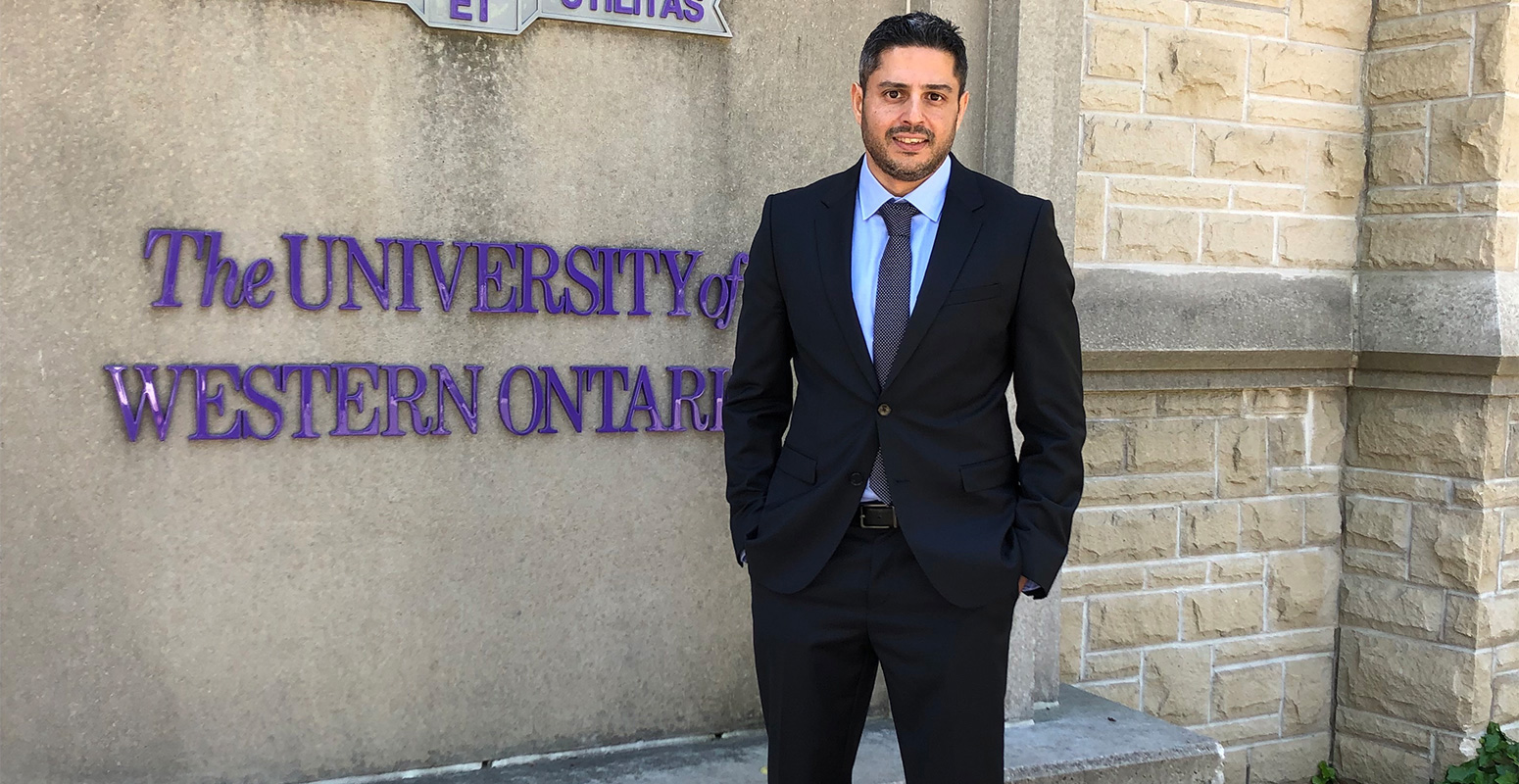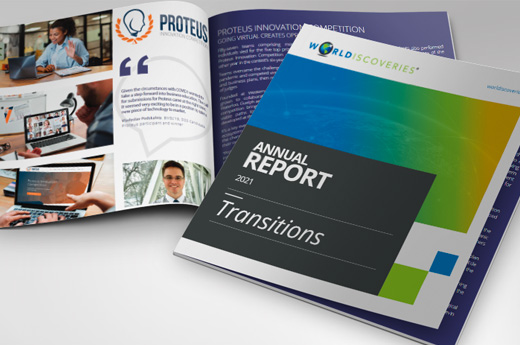Alumnus applies innovations developed in lab to exclusively licensed venture
Western alumnus Hisham Hafez, PhD’10, MBA’19, is taking his innovative bio-fuel process from the lab to market as the Senior Director, Renewable Natural Gas Projects at Greenfield Global, a producer of high purity alcohols, solvents, biofuels, and bio-processing materials.
Hafez was a doctoral student in the Civil and Environmental Engineering department when he was approached by a Greenfield executive during a poster presentation, interested in his research involving converting waste biomass into biological hydrogen and methane using a novel process he developed and patented throughout the course of his program.
WORLDiscoveries, the business development arm of a research partnership between Western, Robarts Research Institute and Lawson worked with Hafez to patent his technology and exclusively license it to Greenfield.
Within months of graduating, Hafez obtained an NSERC Industrial Fellowship which allowed him to work for Greenfield to validate his process and see if it could be grown to an industrial scale while maintaining connections to his lab at Western. After completing his fellowship, Hafez joined Greenfield full-time as a research and development specialist to work on developing the technology.
From 2012 to present, Hafez joined the University of Windsor and Western as an adjunct research professor and established a bioenergy lab in Windsor to develop the technology which would lead to building an industrial scale facility at Greenfield’s Chatham-Kent.
The technology allows for up to a 25 per cent increase in biogas production by anerobic digestion of various organic biomass like agricultural residues, and waste from industry, farms, and households. The technology also helps cut the digestion time by up to 30% which could free up organic waste processing capacity in current digestion facilities.
Hafez’ system overcomes the two most important limitations for sustained biological hydrogen production. Contamination of the microbial hydrogen-producing bacteria with methane-producing bacteria and low bacterial yield of hydrogen-producing bacteria. The process uses a complex system of reactors and clarifiers to enhance the hydrolysis of particulate organic material, enhance anaerobic degradation and maximize biogas productivity.
After developing, validating, and testing his process at a demonstration scale at Greenfield research and development centre in Chatham, Greenfield and Hafez were able to determine the process was efficient and novel enough to file for additional patents and task Hafez to develop a commercialization plan.
Once the technology had reached maturity, Hafez was promoted to lead the technology into the next phase, commercializing the technology on a global scale. This spurred Hafez to complete an Executive MBA through Ivey Business School.
“The MBA was very helpful for me, I had always been more involved in the technical and engineering side of the business,” Hafez said, “I needed the business skills to address the challenge of moving the technology from the lab to commercial scale to generate revenue.”
Hafez is now leading the development and construction of the largest facility in Ontario to utilize his technology to produce renewable natural gas from organic waste.
The plant to be developed in Chatham-Kent, adjacent to Greenfield’s existing ethanol facility, will be able to process over two hundred thousand tons of organic waste per year from a variety of sources like green bin programs and industrial, commercial, and institutional organic wastes. The renewable natural gas produced from the biomass will then be sold to energy providers as a low carbon intensity fuel.
Governments at all levels are seeking to divert organic waste from landfills to reduce methane emissions to combat climate change. Greenfield’s facility will enable this by diverting organic waste away from landfill, reduce landfill methane emissions and expand the lifespan of the landfill.
Research shows that power generation technologies can take decades to reach widespread scale. In 12 years, Hafez has ushered his technology from the lab scale to industrial scale, demonstrating how universities, governments and industry can work together to expedite the technology commercialization process.
“My experience at Western demonstrated there are so many pathways for graduate students to take beyond academia,” Hafez said. “I often get asked by students, what can I do with my graduate research, and I always tell them, take it to industry, you can have tremendous impact there.”


